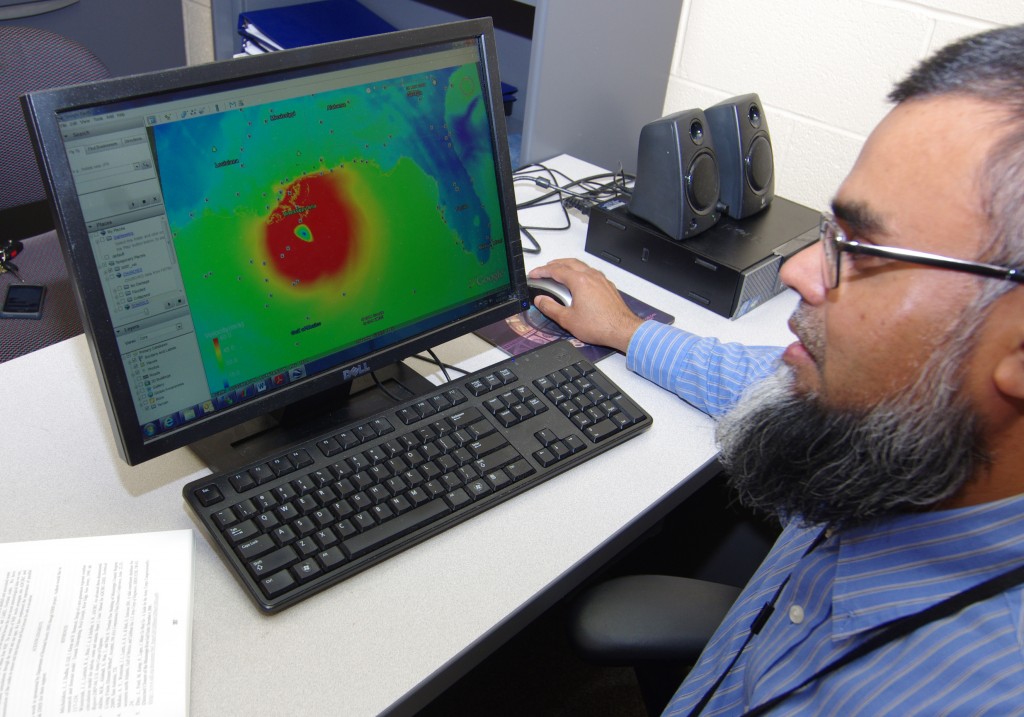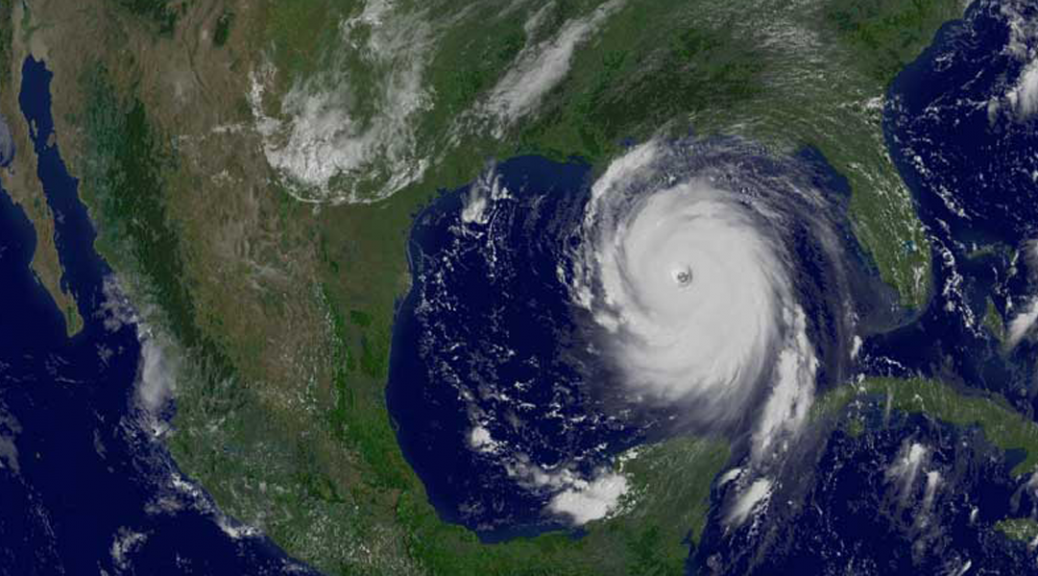
NASHVILLE, Tenn. (TSU News Service) – As coastal states watch the Gulf of Mexico with wary eyes for the beginning of hurricane season each year, scientists and researchers are working from different fronts to ease their anxieties.
A Tennessee State University researcher is working on a simulation model that would help predict storm surge in timely manner to better prepare coastal dwellers for the storm.

Dr. Muhammad Akbar, assistant professor of Mechanical and Manufacturing engineering, is using computational fluid dynamics and mathematical models to predict flooding caused by storm surges that bring ocean water onto land, causing major devastation, and erosion to cities and coastal wetlands.
Aided by a $209,403 grant by the National Science Foundation, Akbar is developing a simulation model that uses an “implicit solver.” While there are other models out there, this implicit model can use a larger timestep, potentially minimizing the overall prediction time.
“We input meteorological data that we receive every few hours, typically six hours, during a hurricane, and predict the surge a few days before its landfall,” Akbar said. “The model input data include the storm’s location, wind speed, pressure, and size of the hurricane eye, surface vegetation and structures,among others.
“The human element of this research can’t be overstated,” Akbar added. “We want to be able to predict the storm surge in a quicker time frame. The objective of this research is to assist the emergency management and people affected by an approaching hurricane with more time to make critical decisions, and evacuate the coastal region, if needed.”
Dr. Akbar points to the devastating effects of the Bhola cyclone that struck his native Bangladesh in 1970 killing nearly 500,000 people, and the more recent Hurricane Katrina that hit the Gulf coast in 2005, as a primary motivation behind his research for the past four years.
“When Katrina slammed into the Gulf Coast as a Category 3 storm, it brought sustained winds of 100-140 miles per hour,” he said, “and a predicted storm surge of 28 feet, causing about 2,000 deaths and more than $100 billion in damage.”
Funded by Department of Homeland Security, US Army Engineer Research and Development Center, and National Science Foundation, Akbar has a profound passion for storm surge research.
“I’m fortunate to get an opportunity to work with top experts in the field and grateful for the research projects,” he added. “These events and others like them have spurred a serious and sustained global effort to improve the ability to predict the coastal surge conditions.”
While it is a complex problem to solve because of the uncertainty of the hurricane track and strength, and other sources of error, Akbar is hopeful that the rapid and reliable storm surge prediction capability is not too far off.
“It is our hope that this research leads to advances in improving warning and evacuation systems, not only here but in the developing world,” Akbar said.
Department of Media Relations
Tennessee State University
3500 John Merritt Boulevard
Nashville, Tennessee 37209
615.963.5331
About Tennessee State University
With nearly 9,000 students, Tennessee State University is Nashville’s only public university, and is a comprehensive, urban, co-educational, land-grant university offering 38 undergraduate, 22 graduate and seven doctoral programs. TSU has earned a top 20 ranking for Historically Black Colleges and Universities according to U.S. News and World Report, and rated as one of the top universities in the country by Washington Monthly for social mobility, research and community service. Founded in 1912, Tennessee State University celebrated 100 years in Nashville during 2012. Visit the University online at tnstate.edu.
